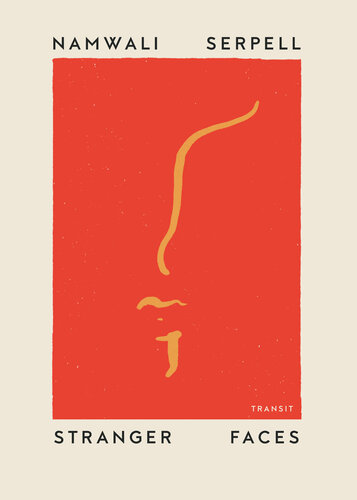
Stranger Faces
Undelivered Lectures
کتاب های مرتبط
- اطلاعات
- نقد و بررسی
- دیدگاه کاربران
نقد و بررسی

June 1, 2020
A set of essays reconsidering how we think about faces through the lens of films, books, emoji, and more. Serpell is one of our brightest new fiction writers and essayists. Her 2019 novel, The Old Drift, which won both the Windham-Campbell Prize and Anisfield-Wolf Book Award, addresses colonialism with rare intelligence and sweep while her work for the New York Review of Books makes her a compelling voice on race and Africa in culture. This short book, based on her research, isn't the easiest place to get to know her, but it's rich with thoughtful considerations of the human face and how we look at it. In the case of Joseph Merrick, aka the Elephant Man, Serpell is intrigued at how his deformities inspire a host of metaphors, not all involving ugliness and horror. In Hannah Crafts, the cryptic author of the slave narrative The Bondwoman's Narrative, Serpell finds a trove of subversions of expectations of black and white "faces," from the narrator's light skin and author's plagiarism onward. In a concluding chapter, the author reconsiders the emoji's role in culture and how the lack of common interpretations opens up the images to playful and nuanced interpretations. That plus two more essays on Alfred Hitchcock's Psycho and Werner Herzog's Grizzly Man doesn't add up to a cohesive thesis on faces. Serpell writes that she wishes to "shatter" conventional interpretations of the face, but she isn't moved to assemble a new one from the pieces. Her discussion of fetishes drifts into academic jargon, and she is, by her own admission, overly obsessed with the role of a mop in Hitchcock's classic. But in recasting the Elephant Man's face as a thing of beauty (or at least one with its own aesthetics) and studying digital avatars for multitudes of expression (including blackface), she's broken ground for further commentary. A scholarly but engrossing meditation that challenges what we see in portraits--and in our mirrors.
COPYRIGHT(2020) Kirkus Reviews, ALL RIGHTS RESERVED.

Starred review from July 6, 2020
Novelist Serpell (The Old Drift) delivers a brilliant essay collection that, informed by semiotics, proposes a way of thinking about the human face that views each person’s countenance as possessed of culturally and individually constructed meaning that can change radically according to the beholder. To develop this idea, Serpell offers different examples of “stranger” (in the sense of both “uncanny”and “unknown”) faces. In the first essay, she discusses Joseph Merrick, the Victorian man known as the Elephant Man for his severe deformities. She asks what would happen “if we chose not to treat Merrick’s non-ideal face as a problem that stumps our aesthetic, affective, and ethical beliefs?” Each subsequent essay has a similarly bold question at its core. One muses over the dispute over the racial identity of Hannah Crafts, author of the supposedly autobiographical 19th-century slave narrative The Bondswoman’s Narrative, and what this says about readers’ desire to “put a face to the name” of an author, as they say, and, in this case, “a race to the face.” Another considers the different meanings assigned to the “blank stare” of bears by different participants in Werner Herzog’s documentary Grizzly Man, and why some people find sublimity, and others, terror, in the essential unknowability of wild animals. Serpell’s vital treatise is one readers will find themselves returning to again and again.

























دیدگاه کاربران